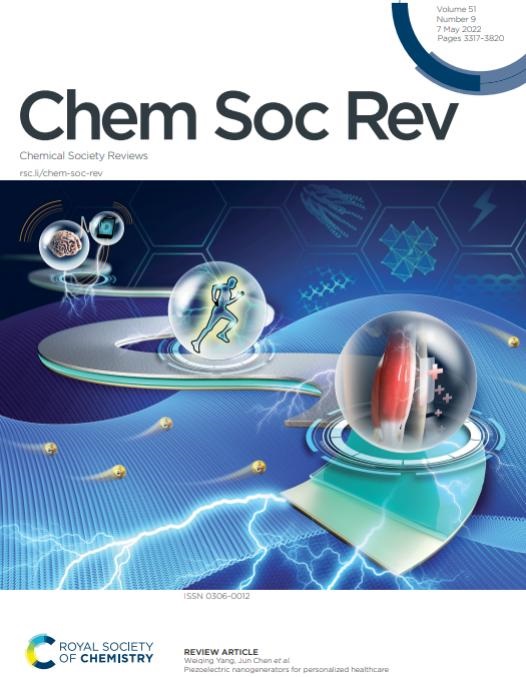加速电池创新:人工智能分子发现。
IF 39
1区 化学
Q1 CHEMISTRY, MULTIDISCIPLINARY
引用次数: 0
摘要
全球能源转型迫切需要先进的电池技术来应对当前的气候挑战,其中分子工程在优化能量密度、循环寿命和安全性等性能指标方面发挥着关键作用。本文系统地研究了人工智能(AI)与下一代电池系统分子发现的整合,解决了变革潜力和可持续性挑战。首先,描述了分子表示的多维策略,以建立机器可读的输入,这是人工智能驱动的分子发现的先决条件(第2节)。随后,系统地总结了人工智能算法,包括经典机器学习、深度学习和新兴的大型语言模型(第3节)。接下来,说明了人工智能预测关键电化学性质的巨大潜力,包括氧化还原电位、粘度和介电常数(第4节)。通过典型案例研究,阐明了人工智能在分子设计中的重要应用,包括化学知识发现、高通量虚拟筛选、定向分子生成和高通量实验(第5节)。最后,对当前面临的挑战和未来的发展方向进行了总结和批判,强调了分子数据库、算法、计算能力和自主实验平台的整合。人工智能有望加速分子设计,从而促进下一代电池系统的开发,并实现可持续能源创新。本文章由计算机程序翻译,如有差异,请以英文原文为准。
Accelerating battery innovation: AI-powered molecular discovery.
The global energy transition urgently demands advanced battery technologies to address current climate challenges, where molecular engineering plays a pivotal role in optimizing performance metrics such as energy density, cycling lifespan, and safety. This review systematically examines the integration of artificial intelligence (AI) into molecular discovery for next-generation battery systems, addressing both transformative potential and sustainability challenges. Firstly, multidimensional strategies for molecular representation are delineated to establish machine-readable inputs, serving as a prerequisite for AI-driven molecular discovery (Section 2). Subsequently, AI algorithms are systematically summarized, encompassing classical machine learning, deep learning, and the emerging class of large language models (Section 3). Next, the substantial potential of AI-powered predictions for key electrochemical properties is illustrated, including redox potential, viscosity, and dielectric constant (Section 4). Through paradigmatic case studies, significant applications of AI in molecular design are elucidated, spanning chemical knowledge discovery, high-throughput virtual screening, oriented molecular generation, and high-throughput experimentation (Section 5). Finally, a general conclusion and a critical perspective on current challenges and future directions are presented, emphasizing the integration of molecular databases, algorithms, computational power, and autonomous experimental platforms. AI is expected to accelerate molecular design, thereby facilitating the development of next-generation battery systems and enabling sustainable energy innovations.
求助全文
通过发布文献求助,成功后即可免费获取论文全文。
去求助
来源期刊

Chemical Society Reviews
化学-化学综合
CiteScore
80.80
自引率
1.10%
发文量
345
审稿时长
6.0 months
期刊介绍:
Chemical Society Reviews is published by: Royal Society of Chemistry.
Focus: Review articles on topics of current interest in chemistry;
Predecessors: Quarterly Reviews, Chemical Society (1947–1971);
Current title: Since 1971;
Impact factor: 60.615 (2021);
Themed issues: Occasional themed issues on new and emerging areas of research in the chemical sciences
 求助内容:
求助内容: 应助结果提醒方式:
应助结果提醒方式:


